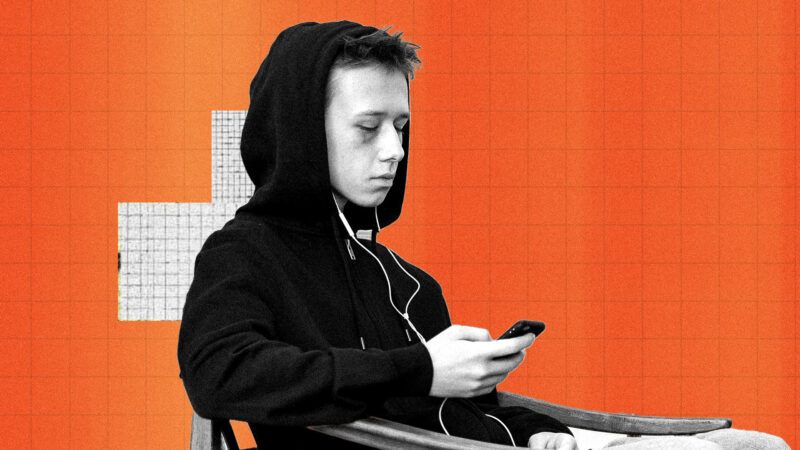Does Mental Health Awareness Make Things Worse?
Illinois wants to give mental health screenings to elementary schoolers. Will that actually help struggling kids?

Last week, Illinois Gov. J.B. Pritzker signed a law mandating mental health screenings for students attending the state's public schools. The bill orders that students be screened at least once per year, starting in third grade, though it did not specify what the screenings would consist of.
"Mental health is essential to academic readiness and lifelong success," Illinois State Superintendent of Education Tony Sanders said in the Thursday press release. "Too often, we only recognize a student's distress when it becomes a crisis. With universal screening, we shift from reaction to prevention. The earlier we identify a need, the better support we can provide to that student to help them thrive—in school and in life."
However, there's good reason to be skeptical of claims that mental health screenings actually help prevent student mental health crises. In fact, there's some evidence that attempting to increase mental health "awareness" among children can actually make things worse.
For example, one Australian study broke 1,000 teenagers into two groups: one received a typical health class, and the other received what was essentially group therapy. While researchers thought that the students who got therapy would do better, the opposite was true. "The therapy seemed to make the kids worse. Immediately after the intervention, the therapy group had worse relationships with their parents and increases in depression and anxiety," Atlantic writer Olga Khazan wrote in an article discussing the study. "They were also less emotionally regulated and had less awareness of their emotions, and they reported a lower quality of life, compared with the control group."
"Alleviating the teen-mental-health crisis may require something that is not altogether comfortable for adults: trusting that teenagers will know when they need help," Khazan concluded. "We may need to make treatment available but not obligatory. Teens have plenty of obligations as it is."
We don't know what the Illinois mental health screening program is likely to involve. But outcomes like the Australian study suggest that asking kids to focus on their negative feelings might make them less happy. If the state doesn't use the screening to sort kids into some kind of school-provided mental health treatment, it's especially likely that the screenings won't do much at all. There's not much that compels students to be honest about their feelings.
Over the past decade or so, American culture has become obsessed with mental health awareness. Campaigns to raise public awareness of mental illness and suicide swept social media and popular culture in an attempt to normalize asking for help in times of crisis. While well-meaning, this effort has led to the formation of an all-encompassing therapy culture. Now, most Americans—especially teenagers and young adults—are extremely aware of mental health. We know that everyday distress can probably be categorized as anxiety and depression. We also know about more serious conditions like bipolar and personality disorders and whether or not we have them. We know never to call ourselves "a little OCD" or to say that everyone is a "bit on the spectrum." We know to call our romantic foibles "avoidant attachment" and to insist that our ex-boyfriend "lovebombed" us.
We are profoundly, achingly "aware" of mental illness, but we don't seem to be getting much happier for it. During the 2010s, the suicide rate climbed for adolescents, and so did rates of emergency room visits for nonsuicidal self-harm. In one 2022 survey, 36 percent of 18- to 25-year-olds reported experiencing anxiety and 29 percent reported experiencing depression.
It's hard to fully tease out the cause and effect here. Obviously, young people are feeling terrible for lots of complex reasons: a lack of independence, economic uncertainty, permanent damage from COVID lockdowns, and—that old chestnut—the phones. Therapy culture might be making things worse, but it also is an outgrowth of an environment in which most people seem to be feeling pretty lousy and are looking for a way to explain why they're so miserable.
While everyone wants children to be happy—and wants to be able to identify the kids who are struggling before the worst happens—it's just not at all clear that grilling kids, some as young as 8 or 9 years old, about their psychic pain will have the intended outcome. Sometimes, less is more.


Show Comments (45)